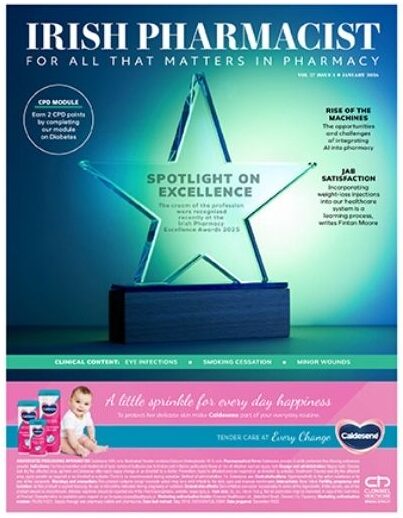Results of a new European Academy of Dermatology and Venereology (EADV) survey presented at the recent EADV Spring Symposium show that 1.71 per cent of the adult European general population reported having skin cancer, meaning some 7,304,000 Europeans are estimated to have the disease. This is despite skin cancer being the most preventable cancer.
The survey data also show that a mole check or skin cancer screening was the main reason for patients consulting a dermatologist over the past 12 months, with over a fifth (22.3 per cent) of appointments made with a skin specialist being to check a mole or lesion.
The findings from the EADV’s Burden of Skin Disease (BOSD) survey of 44,689 adults from 27 countries indicate the need for an “expansion in skin cancer education across Europe to help the population make safer skin choices,” according to leading dermatologists at the organisation.
Of the people surveyed, 0.6 per cent reported a diagnosis of melanoma, the deadliest form of skin cancer. However, keratinocyte carcinomas, which include basal cell and squamous cell carcinomas, are by far the most widespread of all cancers and the most rapidly increasing, with incidence expected to rise by over 40 per cent by 2040.
Prof Marie-Aleth Richard, Professor at the University Hospital of La Timone, Marseilles, and the EADV Board Member leading the survey, said the results “demonstrate the need for action to be taken to prevent skin cancer, which has a good prognosis if caught early but is perceived by the population as a serious and life-threatening condition.”
Prof Richard said she believed the survey “underscores the need for improved understanding, education and awareness about skin cancer and implementing evidence-based interventions as part of Europe’s Beating Cancer Plan.
“Skin cancer is part of the 40 per cent of cancers that are preventable and whose incidence we could considerably reduce if we provided more consistent and widespread education to the population,” she added.
“This should be complementary to an adequate policy and regulatory framework to reduce the incidence of skin cancer and prevent it becoming a significant challenge to health systems.”
Almost half of people surveyed (46.6 per cent) who reported at least one skin cancer said they felt ‘moderately or extremely anxious and depressed’, with anxiety and fear about surgical scars, death and metastasis being the main reason for an alteration in quality of life.
Whilst nearly half of patients said there was a negative impact on their personal life, almost three-in-five said they were impacted in their professional life. The biggest result was a change in working hours or altering professional activity, but 22.6 per cent said they did not get a hoped-for job and 31.3 per cent refused a professional offer.







